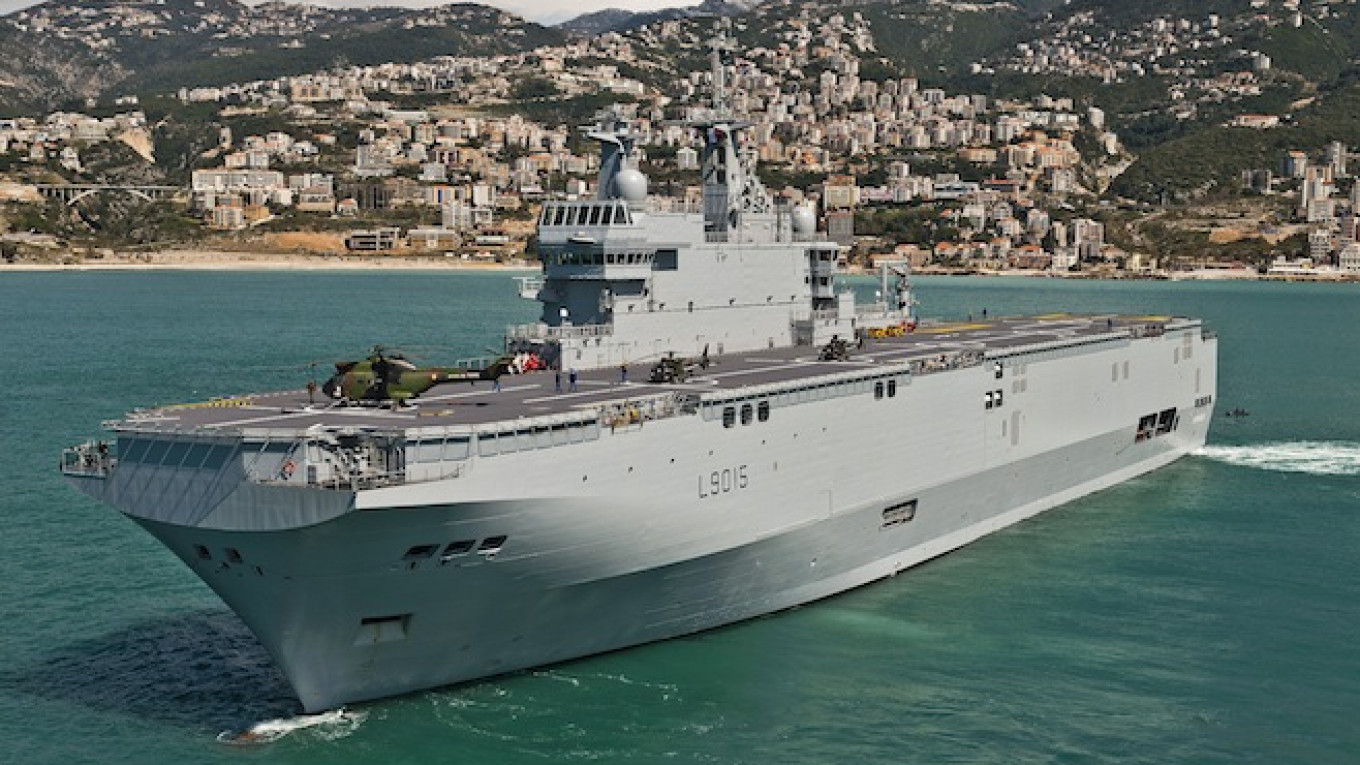Russia expects France to honor a contract to sell it two Mistral helicopter carriers, President Vladimir Putin said in an interview with French media, also raising the prospect of other deals.
France is under pressure from allies such as Washington and Warsaw to reconsider the contract, which is worth more than 1.2 billion euros ($1.6 billion) and was agreed before the crisis over Ukraine began.
If France decided against selling the ships, Russia expected its money back, Putin said in an interview with TF1 television and Europe 1 radio ahead of a trip to France for D-Day commemorations.
"We expect our French partners to fulfill their contractual obligations, and if everything goes as we agreed, we will not rule out the possibility of further orders — and not necessarily in naval shipbuilding," Putin said, according to an English transcript of the interview provided by the Kremlin.
He added that Russia would like to strengthen ties in aviation, shipbuilding and other areas.
Putin also gave no ground over Russia's annexation of Crimea, and said Moscow was not seeking to destabilize the country.
He accused the U.S. and the European Union of causing the crisis when, in his words, they "supported the anti-constitutional armed coup."
Putin said it was up to U.S. President Barack Obama, who will also attend the 70th anniversary commemoration of the World War II seaborne invasion in northern France, whether they met there. Putin also did not rule out meeting Ukrainian President-elect Petro Poroshenko.
"There will be other guests, and I'm not going to avoid any of them. I will talk with all of them," Putin said.
See also:
U.S. Lawmakers Want France to Sell Russian-Ordered Warships to NATO
Poland, Too, Says France Should Cancel Mistral Deal With Russia
A Message from The Moscow Times:
Dear readers,
We are facing unprecedented challenges. Russia's Prosecutor General's Office has designated The Moscow Times as an "undesirable" organization, criminalizing our work and putting our staff at risk of prosecution. This follows our earlier unjust labeling as a "foreign agent."
These actions are direct attempts to silence independent journalism in Russia. The authorities claim our work "discredits the decisions of the Russian leadership." We see things differently: we strive to provide accurate, unbiased reporting on Russia.
We, the journalists of The Moscow Times, refuse to be silenced. But to continue our work, we need your help.
Your support, no matter how small, makes a world of difference. If you can, please support us monthly starting from just $2. It's quick to set up, and every contribution makes a significant impact.
By supporting The Moscow Times, you're defending open, independent journalism in the face of repression. Thank you for standing with us.
Remind me later.






